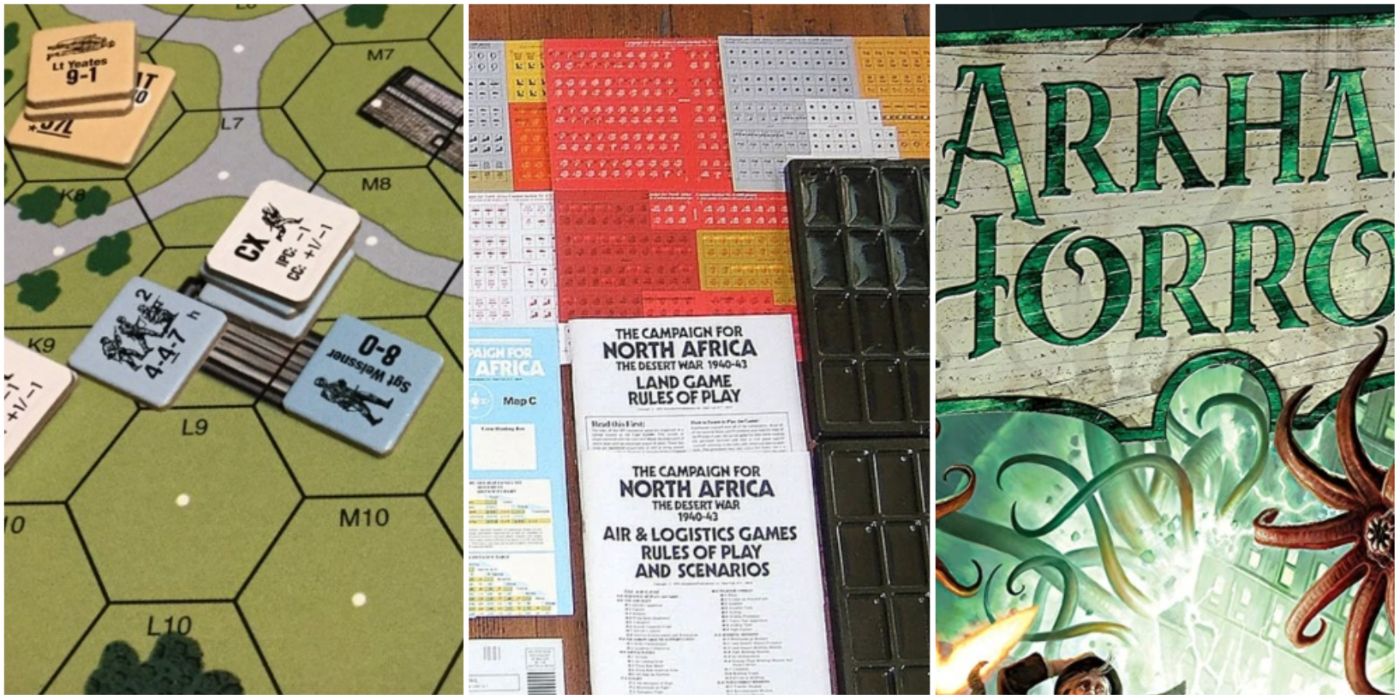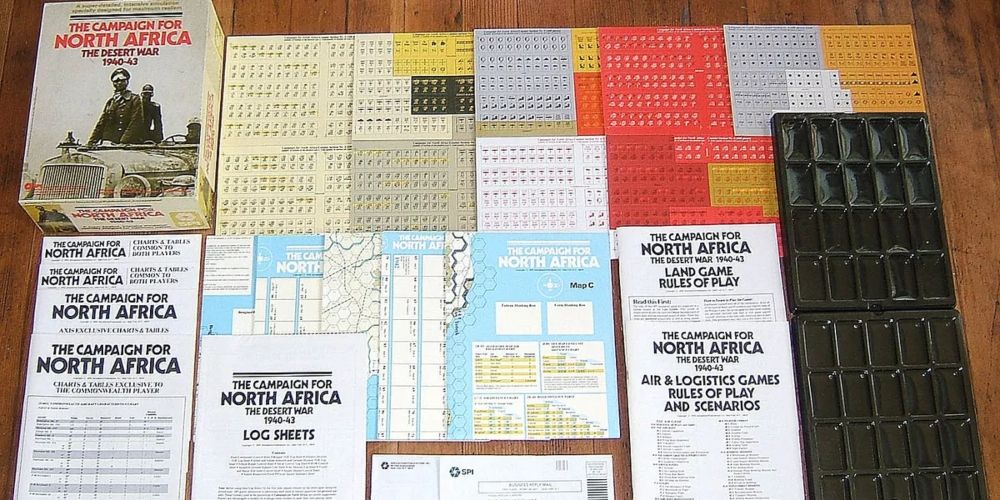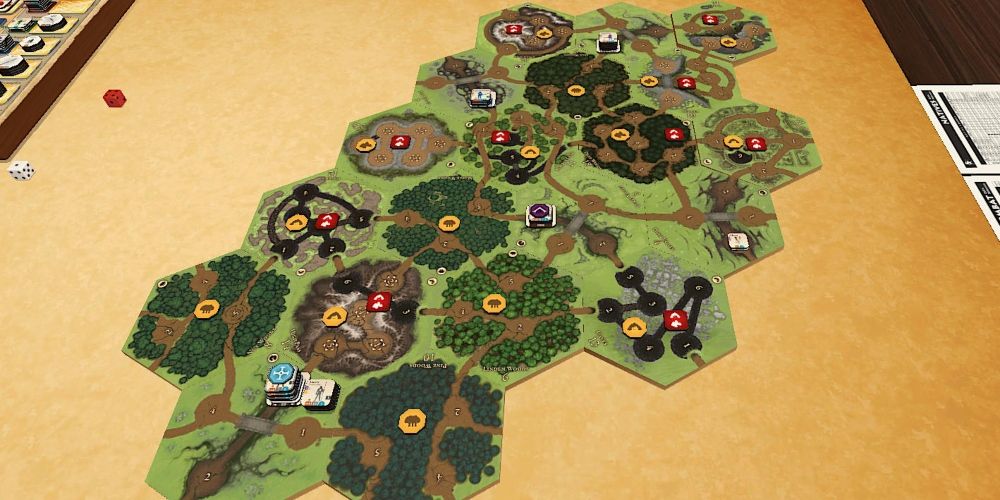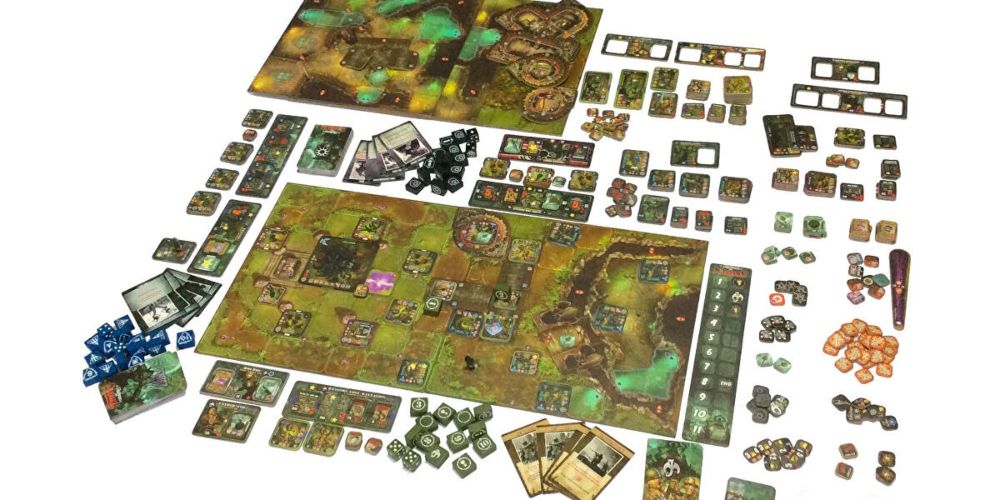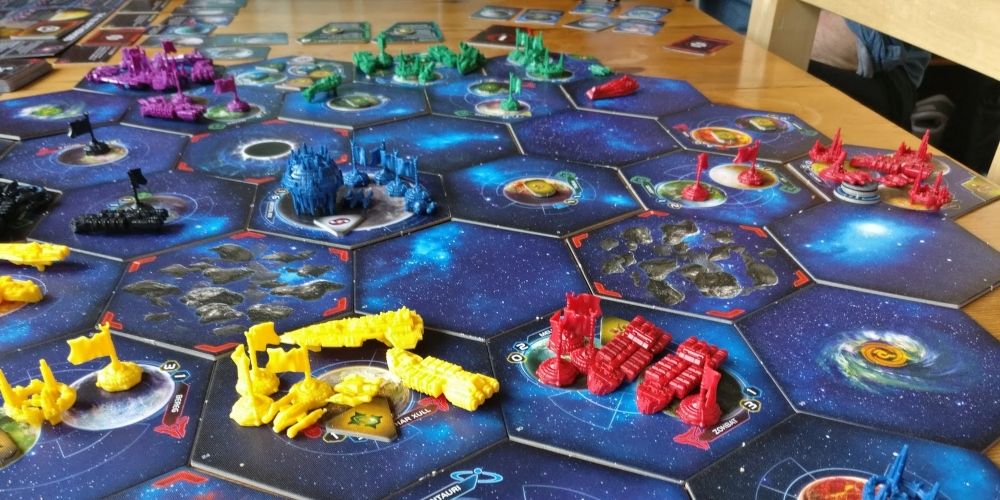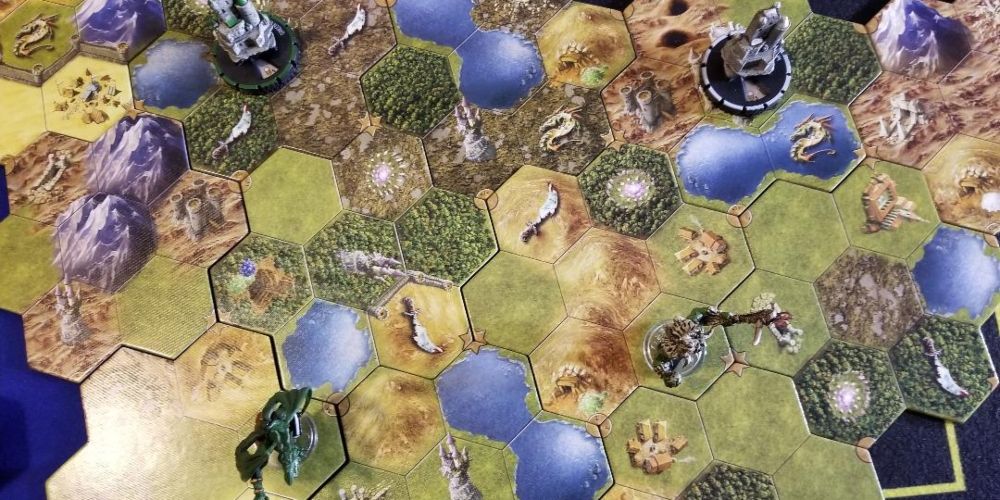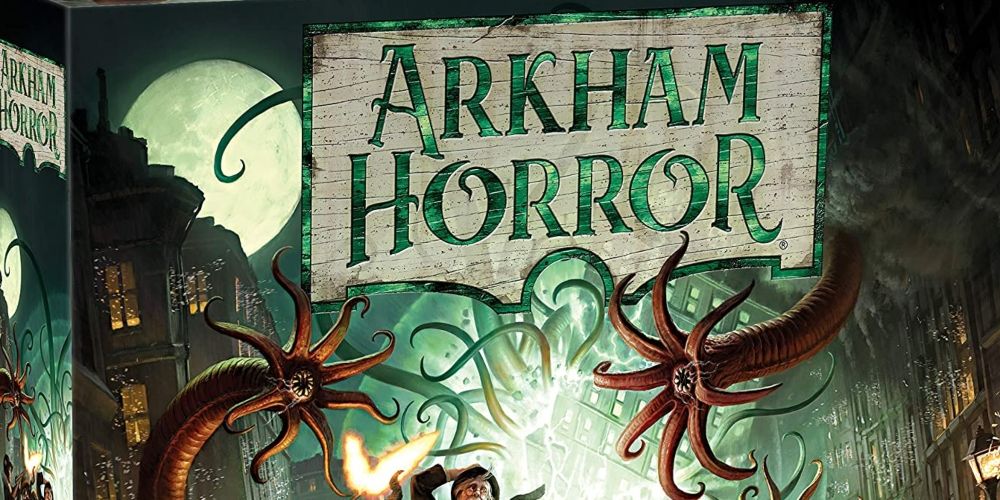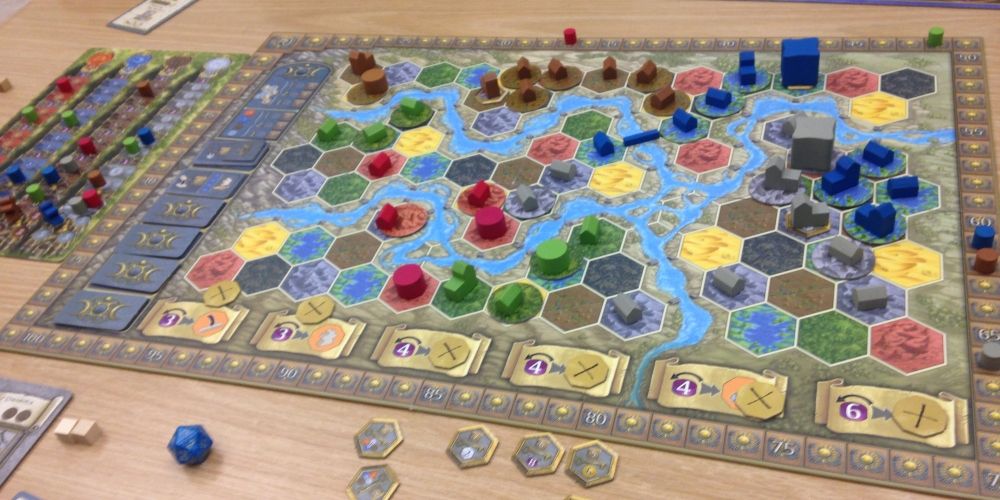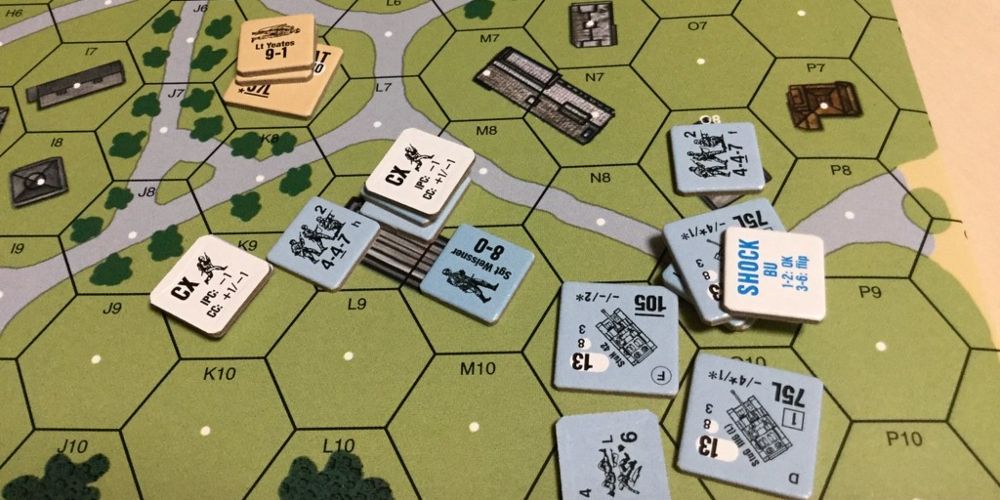Board games have a reputation for complexity. Compared to other games, they shift the burden onto players, forcing them to remember how every turn works, keep track of resources, remember the relevant rules for any situation, and much more. Many games are well aware of this, and limit how complex they become.
Other games take no such preoccupations. They freely load the player with complex phase orders and resources to keep track of, having rulebooks full of edge cases and exceptions for players to remember. Some players enjoy the complicated nature of these games, but for many, it simply detracts from an enjoyable game.
10 The Campaign For North Africa Is Infamously Detailed
War is a complex thing. Likewise, war-themed board games have a reputation for complicated rules, particularly if they attempt to be accurate in their simulation of reality. Few take it as far as The Campaign for North Africa, a game infamous for its ridiculous play time, the length of its rules, and the level of detail it attempts to replicate.
Described as a logistics game rather than a strategic one, The Campaign for North Africa charges the players with managing the military effort of the entire North Africa campaign in World War II. Recommended for ten players, it tasks each player with running the logistics for one arm of their military. Predicted to last around 1500 hours, the rules go to the extent of asking the Italian side to maintaining water for boiling pasta.
9 Magic Realm Blurs The Line Between Board Game And RPG
Recreate the character-focused, adventuring feel of a roleplaying game in a board game is many players' dream come true, and several board games succeed in this endeavor. While games like Gloomhaven are enthralling and entertaining despite their complexity, sometimes games stumble and create an overly granular experience.
Magic Realm remains an infamous case. It focuses on complex systems of characters, strengths, weaknesses, rivalries, and player-chosen victory conditions that can make simply understanding it a task. In addition, set-up can take several hours on its own, and the rules are notorious for being vague and open to interpretation despite their large volume.
8 Shadows Over Normandie Doesn't Take Time To Explain Itself
Sometimes, games can have deeply entertaining and well-designed systems that are almost impenetrable to new players. This is the case in Shadows Over Normandie, a game that takes the frantic wargame Heroes of Normandie and pits its Allies against Nazi cultists and the Lovecraftian abominations they summon.
Those who've learned the game's rules commend it as an entertaining wargame that doesn't waste its Cthulhu-esque presence. However, its rules assume the player possesses knowledgeable about both Lovecraft's fiction and Heroes of Normandie itself. Launching into jargon from the start, it doesn't pause to ease players into the game.
7 Twilight Imperium Is Poorly Explained
Even intuitive and well-crafted games can come across as overly complicated or complex if their rules don't explain them in an easy-to-understand fashion. Twilight Imperium has become a beloved sci-fi game infamous for its sheer length — with games traditionally taking 90 minutes per player — and for how hard it can be to understand.
Although its base rules are intuitive and easy to learn, Twilight Imperium piles exception after exception on the player as a result of faction effects, technologies, rules interactions, and more. Coupled with poorly explained mechanics, including some players not understanding how to win, the game has earned a reputation for complexity.
6 Magic: The Gathering Can Be Hard On New Players
As the most popular card game in the world, Magic: The Gathering evidently doesn't repel all newcomers. However, while it draws in players, it can be difficult to play or even to understand in a person's first few rounds. Although its base rules of tapping and playing cards are easy to follow, there's plenty for a player to keep track of.
Nearly every card has its own rules, many of which create exceptions to pre-existing rules or require players to memorize a glossary of keywords. With so many overlapping and sometimes-contradictory effects rubbing up against the game's best rules, many new players are unlikely to understand much of what happens during their first few games — especially in more open formats like Modern or Commander.
5 Mage Knight Falls Short Of Its Desired Simplicity
Mage Knight is a game that genuinely tries to make itself fast-paced and easy to understand, designed to limit the amount players need to reference rulebooks or character sheets by printing the statistics of each game piece on its base. Despite this, it's become infamous for a complexity that can stump new players attempting to learn it.
Players won't need to check rulebooks for their units' statistics, but will for almost everything else. With a huge number of interactions between nearly all the rules, which affect a unit's stats and what it can do, the game doesn't flow as quickly as it wants to.
4 A World At War Piles System On System
One way board games can make themselves overly complicated is by adding mechanics. If a player can get to grips with the core moving mechanics, interacting with other units, and deploying new ones, but then has to learn several more to engage with the game, they may decide to play something else.
A World At War falls into this pitfall. The most common guide for players is to learn the game by playing individual scenarios, each of which introduces different systems without combining them into a whole. Between land movement and combat, naval movement and combat, research, economy, and more, the game can be too much for players to keep track of.
3 Arkham Horror Is Lovecraft At Its Densest
One of the all-time classic horror board games, Arkham Horror puts players in the role of investigators racing against time to stop the horrific monsters of the Cthulhu mythos from entering the world. It's become a well-loved staple of board gaming, but even fans find its complexity infamous.
No individual rule is hard to grasp, but the game is notorious for how many rules it has in play at any given time. This forces players to keep track of a huge amount of information. Eldritch Horror, a newer version of the game with streamlined rules, has been well-received for reducing how much a player needs to think about.
2 Terra Mystica Is Very Freeform
Although a game can easily bog itself down with overly structured turns, structure can be invaluable for helping new players grasp the rules. A game that largely does away with this is Terra Mystica, a game known for how free form and unstructured its actions are, letting players take multiple actions at almost any time.
Combined with its abstract theming, the number of additional rules in play, layers of mechanics that affect each other and every move, Terra Mystica can be a lot to take in. It becomes more intuitive after a few games, but players often struggle to keep up in the beginning.
1 Advanced Squad Leader Is Incredibly Detailed
As the scale of a game decreases, the level of complexity often increases. Advanced Squad Leader proves a classic example of this, focusing on the minutiae of combat between a handful of individuals, rather than the broad strokes approach many battalion or army-level games take.
Although the game has a dedicated fanbase, it's known for being complicated in almost every way. Its rules are lengthy, full of jargon, and burdened with interactions and edge cases. Even if players learn one system at a time, the game is so full of granular detail that it can be a chore to learn despite the game's quality.

